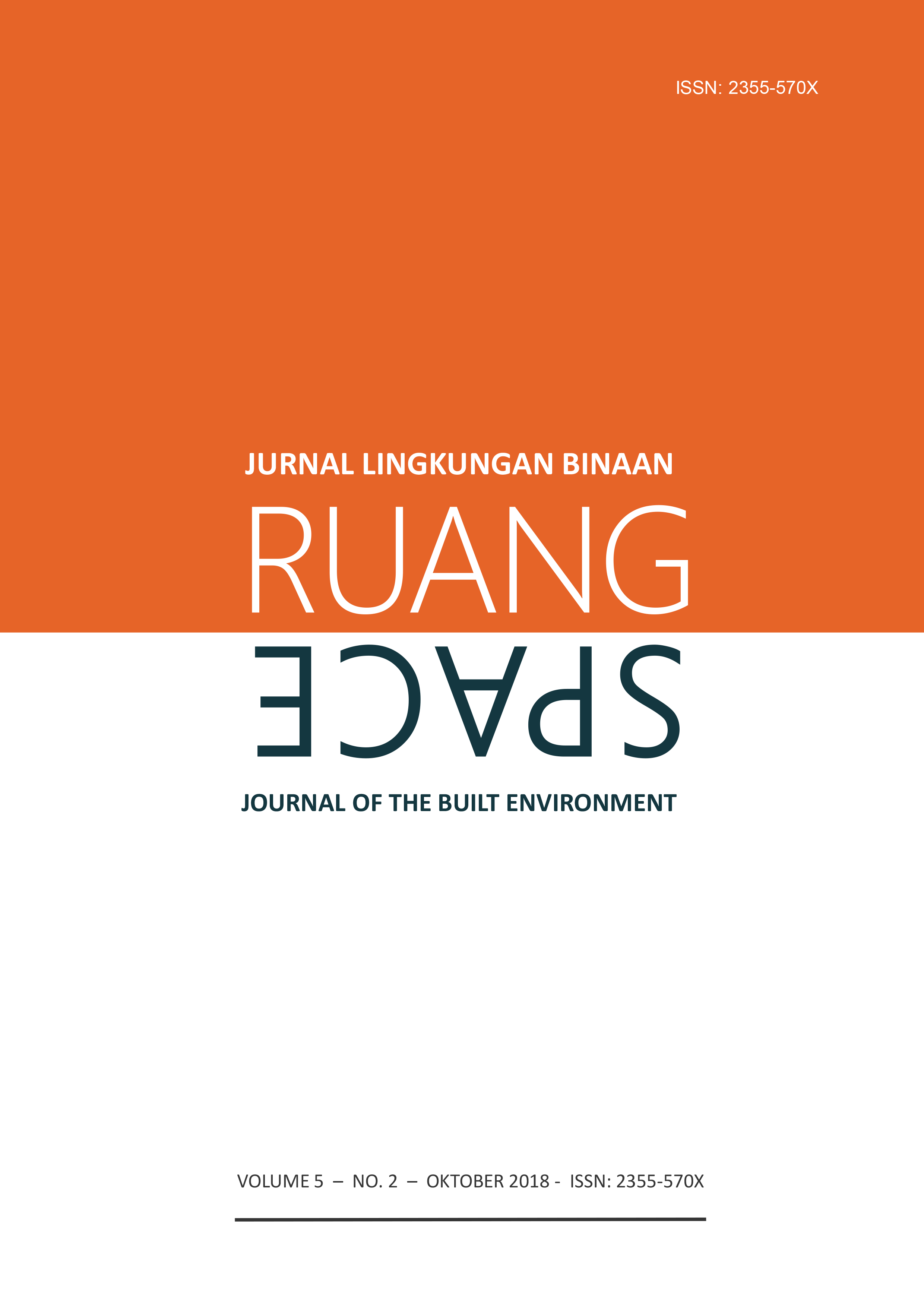Pola Tata Ruang Kampung Adat Wologai di Desa Wologai Tengah Kabupaten Ende
Abstract
This article aims at exploring the characteristic of spatial pattern of Wologai Settlement, a unique traditional neighborhood of Ende-Flores. It studies the natural setting; customs and traditions; as well as spatial uses and functions. These elements are considered as encompassing elements conferring to spatial traits that characterize this Wologai Settlement. This research is a qualitative research and mainly uses a field survey method for its data collection. The article has three main parts. The first explains the existing Kampung Wologai and its unique physical natural setting. The second describes fundamental physical and non-physical elements determining the spatial formation of Wologai Settlement. And lastly, the third part presents discussion over intrinsic attributes imbedded within Wologai's spatial pattern. This study construes that the prominent circular spatial pattern of Kampung Wologai, on the one hand symbolizes a strong connection with a unique concept of kinship that creates a resilient society. And it is also a product of adaptation to terraced natural topography as well as a customary concept of orienting its neighborhood toward a mountain as a sacred natural feature, on the other.
Keywords: Wologai settlement, spatial pattern, space, customs
Downloads
The copyright of the received article shall be assigned to the journal as the publisher of the journal. The intended copyright includes the right to publish the article in various forms (including reprints). The journal maintains the publishing rights to the published articles.



